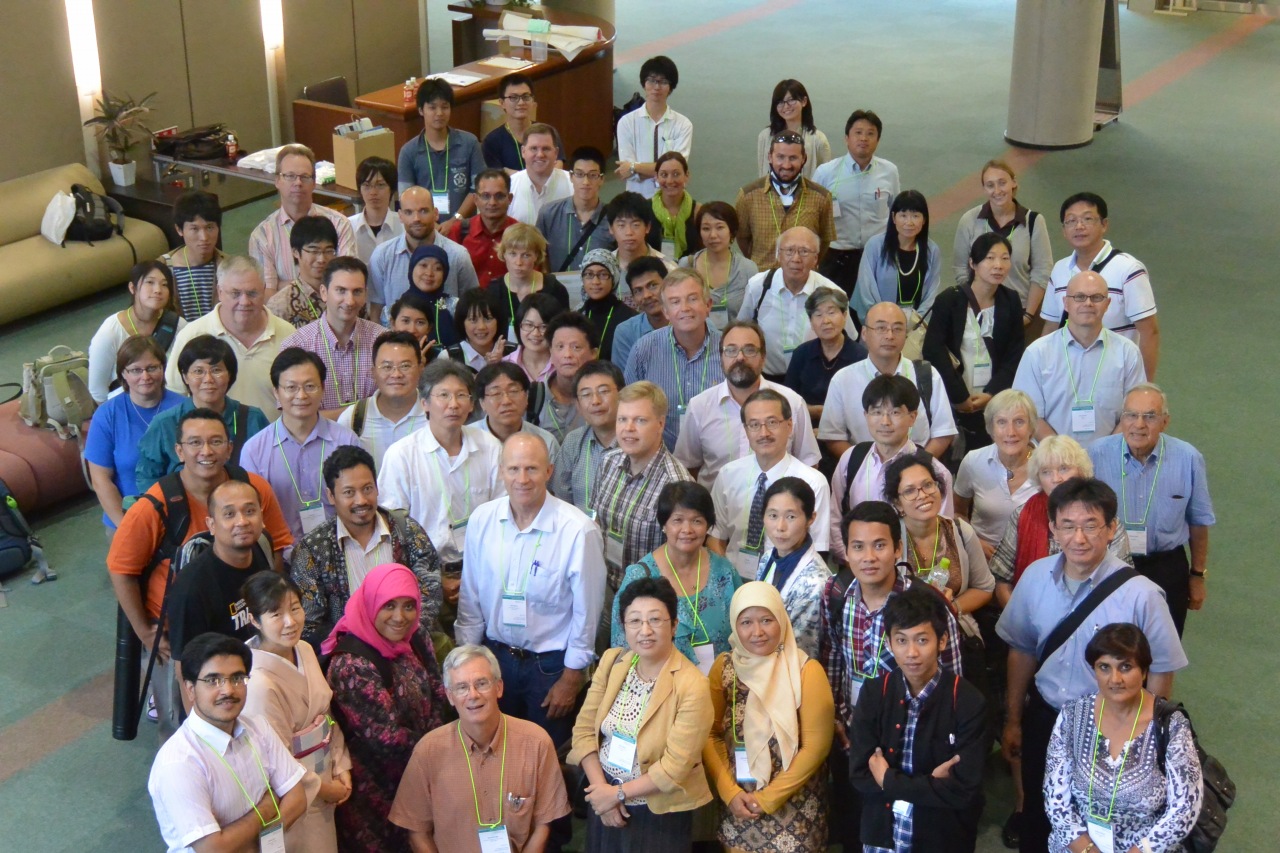Report from the IUFRO 2013 Conference on Future Directions of Small-scale and Community-based Forestry, Fukuoka, Japan, 8-13 September.
Community-based forestry and small-scale forestry are of key importance for sustaining sound forest management in both developed and developing countries. Small-scale forestry provides important environmental protection, landscape conservation and rural development benefits as well as timber production in many countries. However, small-scale forestry faces major challenges in developed and semi-developed countries, especially associated with aging, declining birthrates, depopulation, and unemployment in rural districts.
In many countries, small and fragmented forestland ownership is quite common. In some countries, communal forest ownership as a residue from feudal eras is still alive and has been managed by rural communities.
On the one hand, such communal forests or commons may be considered as a pre-modern and inefficient style of ownership which is likely to disappear under the market economy. On the other hand, communal forests offer a variety of possibilities for the conservation of ecological landscapes or healthy rural development.
When looking at developing countries, in some cases there have been moves for forest land tenure/ownership to be distributed to communities or individuals with the rapid acceleration of decentralizing policy in the forestry sector. Under such circumstances, researchers are struggling to analyze and understand how to accomplish a successful management of community-based forestry. To better understand the present situation and the future challenges of small-scale forestry as well as different types of community-based forestry, a gender perspective is needed.
Such a gender perspective was discussed at the conference on Future Directions of Small-scale and Community-based Forestry in Fukuoka, Japan, where the following issues were addressed:
a) Roles of small-scale and community-based forestry for rural development
b) Theoretical and conceptual issues of small-scale and community-based forestry
c) Landowners’ attitudes toward forest management
d) Consolidation of forest practices to overcome fragmented land
e) Women’s participation to community-based forestry
f) Activity of women’s organization for sustainable forest management
g) Agroforestry & non-timber forest products
h) Land tenure & traditional inheritance system
i) Modification of traditional community-based forestry
j) Activities of forest owners’ cooperatives
k) Education & communications in forestry
l) Timber markets and distribution systems
In the course of the conference participants were made aware of the reality of small-scale forest owners in many developed countries who have been suffering from aging and depopulation of their villages, as well as from decreasing forest income and increasing dependence on other income sources; the need to understand the changes in forest owner’s attitudes toward forest; and the progressive grouping of forest owners, support of forest owners’ cooperatives and consolidation measures in each country.
Participants also confirmed that the issues of small-scale forestry and community-based forestry can be discussed on a new common ground by adding a gender perspective, which will lead them to new directions. As the ratio of woman forest owners in European countries and the U.S. has grown recently, studies on the difference of attitudes of men and women toward forest and the roles of woman forest owner groups are getting more important. It was found, however, that the ratio of woman forest owners varies from country to country and that polices and measures are centered on timber production, while women are also interested in other forest functions.
In addition to these findings which indicate that women’s participation is indispensable to community-based forestry and that women are highly interested in non-timber forest product (NTFP) in developing countries, many other studies to further understand community forestry were announced including a case study on the difference of forest resource management between women’s groups and mixed gender groups.
Presentations of the conference are available at:
http://ffpsc.agr.kyushu-u.ac.jp/policy/IUFRO/program.html
The next conference of the IUFRO Research Group on Small-scale Forestry will be held from 19 to 23 of May, 2014 in Sopron, Hungary on “Adaptation in Forest Management under changing Framework Conditions”. The proceedings of the Japan meeting will be published by the end of December, 2013 at: http://ffpsc.agr.kyushu-u.ac.jp/policy/IUFRO/IUFROF2013.html
The IUFRO Working Party on Gender Research in Forestry plans to open a world café for free discussions of gender issues across all research groups at the XXIV IUFRO World Congress 2014, Salt Lake City, USA, in October 2014.
Report from the IUFRO 2013 Conference on Future Directions of Small-scale and Community-based Forestry, 8-13 September, Fukuoka, Japan, a joint effort of the Small-scale Forestry Research Group (3.08.00) and the Working Party on Gender Research in Forestry (6.08.01), sponsored by the Japanese Forest Economic Society
Information provided by Dr Noriko Sato, Kyushu University, Japan, Deputy Coordinator of IUFRO Working Party on Gender Research in Forestry


Leave a Reply